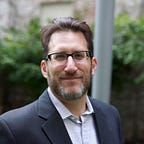The Near-Impossibility of Campaigning During a Pandemic
The process of seeking elected office looks very different than it did just a few weeks ago
 On March 9, Montana Gov. Steve Bullock announced that he was throwing his hat in the ring to challenge incumbent Republican Steve Daines for his seat in the U.S. Senate. Six days later he announced that the state’s schools would close. Five days after that, he ordered the closing of all bars and restaurants. By March 24, Montanans were being told to stay at home and gatherings of more than 10 people were forbidden.
On March 9, Montana Gov. Steve Bullock announced that he was throwing his hat in the ring to challenge incumbent Republican Steve Daines for his seat in the U.S. Senate. Six days later he announced that the state’s schools would close. Five days after that, he ordered the closing of all bars and restaurants. By March 24, Montanans were being told to stay at home and gatherings of more than 10 people were forbidden.
It’s a less than ideal way to begin a statewide campaign for Senate.
According to Bullock’s campaign adviser, Matt McKenna, “Nearly everything is on hold indefinitely.” Campaign events have been canceled and, unlike other Senate candidates, Bullock has eschewed virtual events, like town halls. Instead, says McKenna, the candidate, who is also the state’s chief executive, is “primarily focused on keeping Montanans safe.”
But for his campaign staff, everything has changed. They are “trying to figure out how to do every other aspect of the campaign,” says McKenna. It “feels like reinventing the wheel.”
Bullock’s staff is hardly alone.
